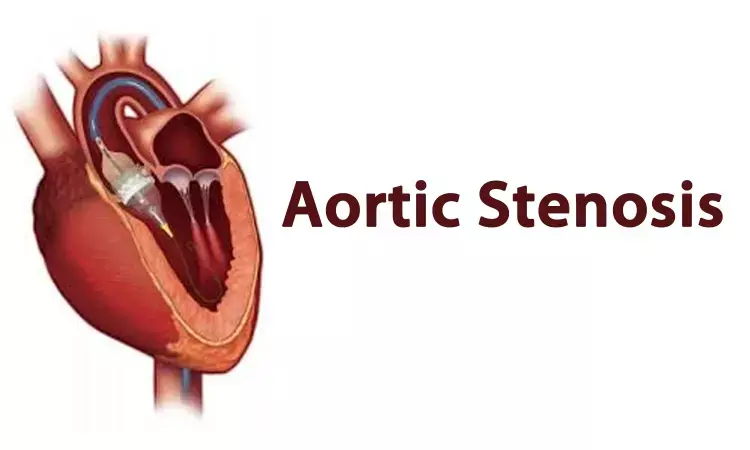- Home
- Medical news & Guidelines
- Anesthesiology
- Cardiology and CTVS
- Critical Care
- Dentistry
- Dermatology
- Diabetes and Endocrinology
- ENT
- Gastroenterology
- Medicine
- Nephrology
- Neurology
- Obstretics-Gynaecology
- Oncology
- Ophthalmology
- Orthopaedics
- Pediatrics-Neonatology
- Psychiatry
- Pulmonology
- Radiology
- Surgery
- Urology
- Laboratory Medicine
- Diet
- Nursing
- Paramedical
- Physiotherapy
- Health news
- Fact Check
- Bone Health Fact Check
- Brain Health Fact Check
- Cancer Related Fact Check
- Child Care Fact Check
- Dental and oral health fact check
- Diabetes and metabolic health fact check
- Diet and Nutrition Fact Check
- Eye and ENT Care Fact Check
- Fitness fact check
- Gut health fact check
- Heart health fact check
- Kidney health fact check
- Medical education fact check
- Men's health fact check
- Respiratory fact check
- Skin and hair care fact check
- Vaccine and Immunization fact check
- Women's health fact check
- AYUSH
- State News
- Andaman and Nicobar Islands
- Andhra Pradesh
- Arunachal Pradesh
- Assam
- Bihar
- Chandigarh
- Chattisgarh
- Dadra and Nagar Haveli
- Daman and Diu
- Delhi
- Goa
- Gujarat
- Haryana
- Himachal Pradesh
- Jammu & Kashmir
- Jharkhand
- Karnataka
- Kerala
- Ladakh
- Lakshadweep
- Madhya Pradesh
- Maharashtra
- Manipur
- Meghalaya
- Mizoram
- Nagaland
- Odisha
- Puducherry
- Punjab
- Rajasthan
- Sikkim
- Tamil Nadu
- Telangana
- Tripura
- Uttar Pradesh
- Uttrakhand
- West Bengal
- Medical Education
- Industry
Higher AVC scores reflective of greater risk of severe aortic stenosis: JACC

USA: A recent study has found the risk of severe aortic stenosis (AS) to be exponentially higher with higher aortic valve calcification (AVC) scores, whereas AVC=0 was tied to an extremely low long-term risk of severe AS. AVC measurement provides clinically relevant information to evaluate an individual's long-term risk for severe AS.
The study, published in JACC: Cardiovascular Imaging, found only 13% of patients free of known cardiovascular disease (CVD) had AVC >0, and there were significant associations of AVC with gender, age, and race/ethnicity.
Previous studies have shown aortic valve calcification (AVC) being a principal mechanism underlying aortic stenosis. Therefore, Seamus P. Whelton, Johns Hopkins School of Medicine, Baltimore, Maryland, USA, and colleagues aimed to determine the AVC prevalence and its association with the long-term risk for severe AS.
For this purpose, the researchers performed non-contrast cardiac computed tomography in 6,814 participants free of known CVD at a Multi-Ethnic Study of Atherosclerosis (MESA) visit. Agatston method was used to quantify aortic valve calcification, and normative sex-, age-, and race/ethnicity-specific AVC percentiles was derived. A chart review of all hospital visits was done to adjudicate severe AS. Multivariable Cox HRs were used to evaluate the association between AVC and long-term incident severe AS.
The study led to the following findings:
- AVC was present in 913 13.4% of the participants.
- The probability of AVC >0 and AVC scores increased with age and was generally highest among men and White participants.
- Generally, the probability of AVC >0 among women was comparable to men of the same ethnicity/race who were approximately ten years younger.
- Over a median follow-up of 16.7 years, incidents adjudicated severe aortic stenosis occurred in 84 participants.
- Higher AVC scores were exponentially linked with the absolute risk and relative risk of severe aortic stenosis with adjusted HRs of 380.9, 76.4, and 12.9 for AVC groups ≥300, 100 to 299, and 1 to 99, compared with AVC = 0.
"Our study is the first to establish an association between an individual's AVC score and their long-term risk of developing severe AS," the researchers wrote.
"It is not surprising that this risk raised with higher calcium score, although the exponential increase in HR observed across AVC categories in this study was quite impressive," they added. "At the same time, the findings and clinical implications are somewhat muted in the absence of viable decalcification strategies."
"Of immediate clinical significance is the finding that patients with an AVC of 0 had almost no risk of severe AS development in the long-term," they noted.
"There is a need to verify these findings in additional studies, but it could lead to practice change, particularly if AVC could be included as a standard measurement in CT scans to evaluate coronary calcium," they concluded.
Reference:
Whelton SP, Jha K, Dardari Z, Razavi AC, Boakye E, Dzaye O, Verghese D, Shah S, Budoff MJ, Matsushita K, Carr JJ, Vasan RS, Blumenthal RS, Anchouche K, Thanassoulis G, Guo X, Rotter JI, McClelland RL, Post WS, Blaha MJ. Prevalence of Aortic Valve Calcium and the Long-Term Risk of Incident Severe Aortic Stenosis. JACC Cardiovasc Imaging. 2023 Mar 30:S1936-878X(23)00115-8. doi: 10.1016/j.jcmg.2023.02.018. Epub ahead of print. PMID: 37178073.
Dr Kamal Kant Kohli-MBBS, DTCD- a chest specialist with more than 30 years of practice and a flair for writing clinical articles, Dr Kamal Kant Kohli joined Medical Dialogues as a Chief Editor of Medical News. Besides writing articles, as an editor, he proofreads and verifies all the medical content published on Medical Dialogues including those coming from journals, studies,medical conferences,guidelines etc. Email: drkohli@medicaldialogues.in. Contact no. 011-43720751


